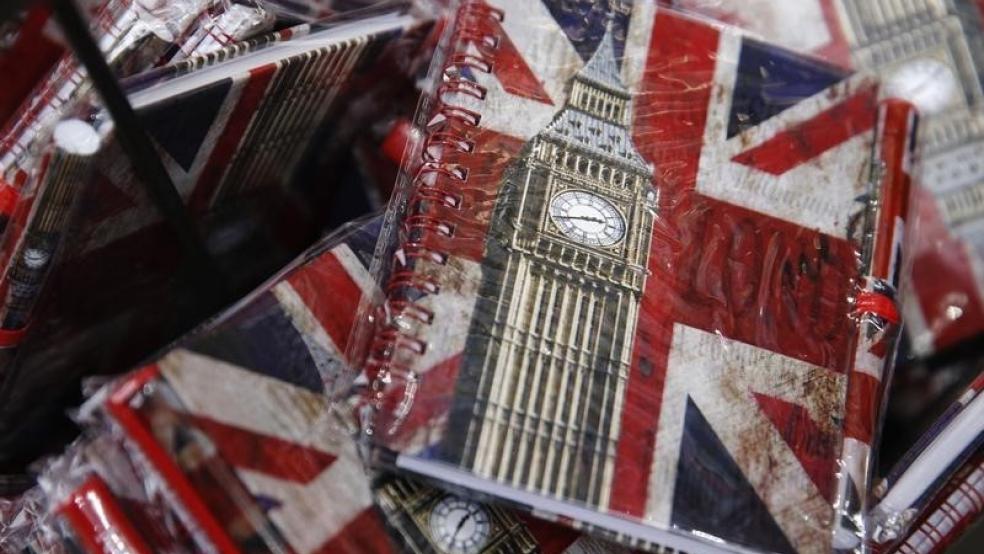The British may be about to shock the world and upend the long-standing institutions of the West. Polling shows a sudden surge in support for Brexit, even as political and military leaders – including President Obama - argue forcefully for the UK staying in the European Union. Why should Americans care? Because as in 1979 when Margaret Thatcher was elected Prime Minister, only to be followed in the U.S. by the Reagan revolution, the Brits may be showing us the way.
Wresting power back from bureaucrats, putting common sense ahead of political correctness, revolting against regulation – Americans may hope to choose a similar path in November if they elect Donald Trump. Like the Brits, they would do so in utter defiance of “establishment" voices, and some say, at their peril.
Related: Oil Slides As Rising Chance Of Brexit Spooks Investors
As is so often the case, a momentous decision may be triggered by something quite small. Indeed, the future of the western world may come down to this: a squabble over tea kettles. The Brits are riled up by the imminent threat that the EU, driven by its aggressive climate agenda, will outlaw the electric tea pots that the English have relied upon for generations to produce their daily fix of Earl Grey and toast.
New “eco-design” regulations governing small appliances have been on the EU shelf for months, delayed by officials correctly worried they might ignite a firestorm of protest just as Brits prepared to vote on their European alliance. Jean-Claude Juncker, European Commission president, finally decided at an April 20 meeting to plow ahead with the new rules.
The issue grabbed headlines when David Coburn, EU skeptic and UKIP Member of the European Parliament, tweeted in February, “My toaster takes 4 attempts before bread goes brown and can put My Dundee marmalade on many thanks to EU.” Americans forced to flush twice because newly required water-saving toilets don’t get the job done can sympathize.
The ban on tea kettles is not the only issue that will decide the EU vote, of course. But it is a symbol, just as the proposed ban of 100-watt bulbs in the U.S. became a symbol of an over-reaching federal government.
Related: Brexit and Fed Fears Weigh On World Stocks; Yen Firms
Most of the arguments for staying in the EU concern the economic fall-out, the possible collapse of exports and likely damage to the UK pound. But, it may well be the most powerful issues in the campaign are not those visible at 40,000 feet, but rather those that impact everyday life.
People are worried that jobs will be snapped up by what Brexit supporters call “uncontrolled immigration.” Others fear that the unchecked flow of migrants from Turkey and the Middle East will take coveted places at schools. The same voices warn that public services like the National Health will be simply overwhelmed.
As in the U.S., many in the U.K. are disappointed in their political leaders, who fail to deliver on campaign promises. In the U.S. voters see power increasingly assumed by a bloated federal government, diminishing the authority and role of local politicians. In the U.K., voters view their representatives in Parliament as increasingly hostage to the dictates of EU officials.
In 2014 the Daily Express, crusading for Brexit, revealed 158 laws impacting British lives that were passed the year before by what they call “EU meddlers.” The list contained mind-numbing rules governing food labeling, ferret imports, cross border healthcare, safety at sea, packaging and so much more. As UKIP leader Nigel Farage said at the time, “Virtually nothing is decided by the British government; it is not debated on the floor of the House of Commons, it is not voted on because we have to a very large extent given away the running of our lives to a set of institutions in Brussels.”
Related: Britain’s Likely to Remain in the EU—But Then What?
The loss of sovereignty and the micro-managing of their lives riles the Brits – complaints that might resonate with Americans. Directives prohibiting diabetics from driving (currently not being enforced in the U.K.) or forbidding bottled water producers from claiming their product hydrates humans appear stupid and unproductive. Moreover, the constant flow of new regulations, like the one allowing consumption of horse meat, but banning the eating of your pet horse (you cannot make this stuff up) stifles growth and entrepreneurship.
Estimates suggest that as many as 80 percent of British laws being passed derive from EU mandates. The price tag is significant; a think tank called Open Europe reported in 2014 that compliance with EU regulations, including environmental and labor rules, cost the U.K. £27.4 billion a year, or nearly $40 billion. The cost of regulations adopted in the U.S. between 1980 and 2012 have cumulatively cost the country $4 trillion – more than the entire GDP of Germany – according to estimates from the Mercatus Center. That is not to argue that all those regulations were pointless; but, they are not free and studies show they impede growth.
Prime Minister David Cameron has warned that leaving the EU could significantly harm Great Britain’s economy; military leaders have cautioned that Brexit would “affect the whole balance of power and equilibrium in the Western World.” UK voters may bow to such fears on June 23, and decide that the status quo is good enough, or they may decide to shake things up.
U.S. voters will face a similar choice on November 8.






